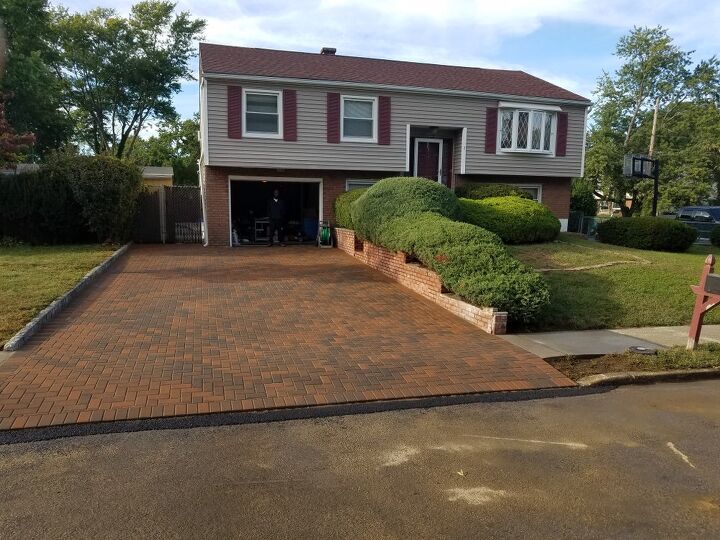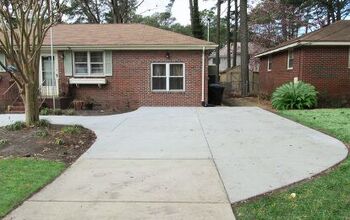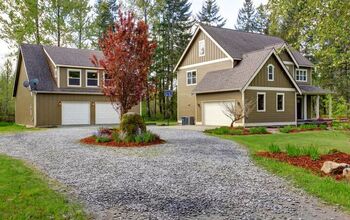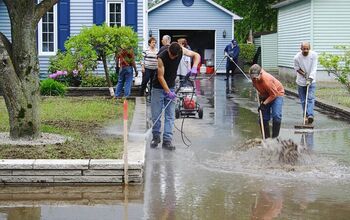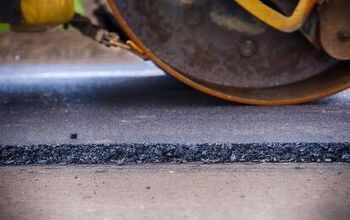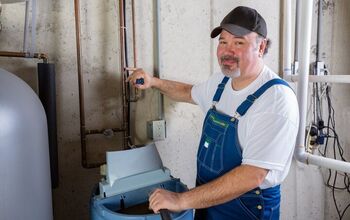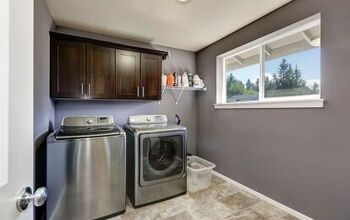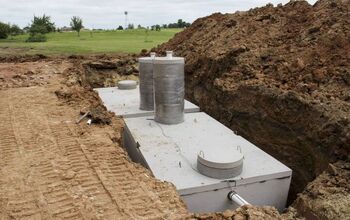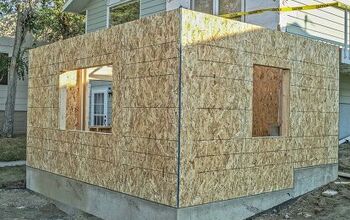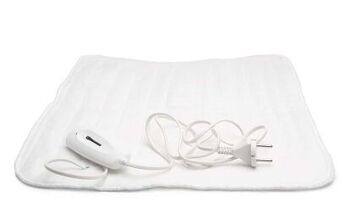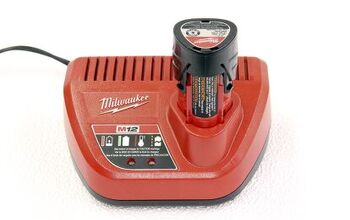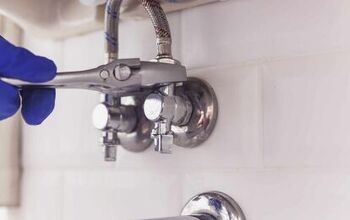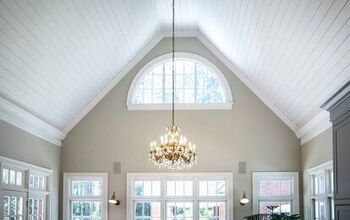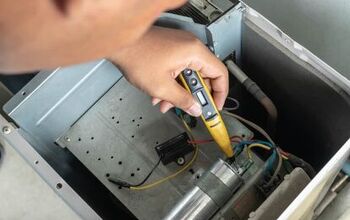2022 Heated Driveway Installation Cost

There are many benefits to having a heated driveway, especially if you live somewhere where the ice and snow are a problem. You might still have to shovel with heavy snowfall, but you won’t be stuck trying to scrape the ice off the pavement. But, how much does a heated driveway cost?
The average cost to install a heated driveway is $16,000 including materials and labor. Homeowners spend an average of $15 per square foot to install a heated driveway, and it costs $9 per square foot to resurface a heated driveway. It costs another $360 per year to run a heated driveway, and heated driveway mats cost $40 per square foot.
We’ve put together this guide with some charts to help you better estimate how much it will cost you to install a heated driveway. Having an accurate quote will help you be prepared and make this venture less stressful for you.
Do You Need Concrete, Brick, or Stone Pros?
Get free, zero-commitment quotes from pro contractors near you.

Heated Driveway Cost
| Heated Driveway Cost | |
| Size | Average Cost |
| 1 car- 12′ x 24′ | $3,400 – $8,000 |
| 2 car- 24′ x 24′ | $6,900 – $16,000 |
| 3 car- 36′ x 24′ | $10,000 – $24,000 |
| DIY heated driveway mat- 2′ x 20′ | $16,000 a piece |
To melt snow, an electric or hydronic radiant system is placed underneath the new driveway’s surface. A hydronic system necessitates the removal of the current driveway, the installation of insulation and tubing, and the paving of new concrete or asphalt.
Although electric systems may be placed in an existing driveway, they may violate the warranty and are more expensive to operate. Of course, this all differs depending on the size of the driveway you install. The larger the driveway, the higher the cost for installation as well as operation.
Cost To Install A Heated Driveway
| Average Cost | ||
| Low | Average | High |
| $6,900 | $14,600 | $22,400 |
Asphalt, concrete, or pavers can be used to cover heated driveway systems. A heated concrete or asphalt driveway might cost anywhere from $12 and $28 per square foot. The cost of installing a snowmelt system in a paver driveway ranges from $19 to $50 per square foot.
Heated Driveway Installation Cost By Material
| Installation Cost | |
| Material | Average Cost Per Square Foot |
| Asphalt | $12 – $27 |
| Concrete | $13 – $28 |
| Pavers | $19 – $50 |
On average, a 2-car heated concrete driveway costs $13 to $28 per square foot or $6,500 to $17,000 overall. This estimate excludes the cost of eliminating an existing driveway. In comparison, a normal concrete driveway without heating costs $4 to $8 per square foot.
Heated Asphalt Driveway Cost
For a two-car driveway, a heated asphalt driveway costs $12 to $27 per square foot or $6,000 to $16,000 overall. In comparison, a conventional asphalt driveway without a snowmelt system costs $3 to $7 per square foot.
Heated Paver Driveway Cost
For a two-car driveway, a heated paver driveway costs $19 to $50 per square foot or $11,000 to $28,000 overall. In comparison, a typical paver driveway without a radiant heating system costs $10 to $30 per square foot.
Heated Driveway Retrofit Cost
| Retrofit Cost | |
| Factor | Average Cost Per Square Foot |
| Asphalt Resurfacing | $1 – $3 |
| Concrete Resurfacing | $3 – $7 |
| Electric Retrofit System Cost | $6 – $10 |
| Total Cost | $7 – $17 |
Heat retrofitting an existing driveway may cost anywhere from $7 to $17 per square foot, depending on the road material and if the heat is applied to the entire driveway or only the wheel track sections. Due to the absence of insulation beneath, retrofitting may violate the warranty and increase operating expenses.
Cutting narrow grooves in the pavement, inserting the electric heating cables with correct spacing, and resurfacing the grooves are the first steps in installing an electric snowmelt system to an existing driveway.
Retrofitting Asphalt Driveway With Electric Coil Heating System
If adequate measures are not followed during installation, hot asphalt can melt hydronic tubing. Until the freshly poured asphalt has cooled, make sure the contractor flushes the tubing with a cold liquid solution.
Consider the age and condition of an existing driveway before upgrading it. It is more cost-effective to include a heating system while rebuilding the driveway.
Heated Driveway Mats Cost
Portable heated driveway mats cost $40 per square foot or $1,600 for a 2’x20′ mat that covers the tire track. Snow melting mats for driveways feature a non-slip surface, plug into a regular 120V outlet, and don’t usually require the construction of additional electrical circuits.
Heated driveway mats may be placed on the driveway at the beginning of the winter season and then rolled up and stored for the rest of the year.
Heated Stairs, Walkway, And Sidewalk Cost
Depending on the length, heated pathways and sidewalk mats may cost anywhere from $140 to $395. Heated stair mats range in price from $55 to $100 per step. Portable snow melting mat controllers range in price from $35 to $70.
How Do Heated Sidewalks Work?
Electric cables or hydronic tube systems are put underneath concrete or asphalt to produce radiant heat, which melts the snow on the top. The use of portable snow melting heating mats to melt snow on residential pathways is a less expensive solution.
Electric Coil Heated Driveway Cost
Electric heated driveways melt snow by radiating heat upward from a grid of heating cables underneath the surface. Electric heating systems need shorter warm-up times and are less expensive to install and maintain; yet, depending on local utility rates, they may be more expensive to run.
Electric snowmelt systems need specialized circuits and, depending on the size of the area to be heated, an updated electrical panel. Here’s some additional costs you can expect:
- Installing new circuits costs between $40 and $100 per hour.
- The cost of upgrading a 400-amp electrical panel ranges from $2,000 to $4,000.
- Homeowners must place a sign noting that an electric snow melting equipment is located beneath the driveway for safety reasons, according to National Electric Code 426-13. Plaques range in price from $38 to $76.
- During power outages, which are common during snowstorms, electric systems cannot function. It will cost between $100 and $250 for an electrictian to come out.
Hydronic Heated Driveway Cost
A boiler heats a combination of water and glycol, and a pump circulates the hot liquid via PEX tubing beneath the pavement’s surface, creating a heated hydronic driveway.
Hydronic snowmelt systems are more expensive to construct and maintain, but they are generally less expensive to operate, depending on the fuel source.
Hydronic Heated Driveway System Installation
Hydronic systems require a separate boiler and are not compatible with the home’s current boiler or hot water heater. The boiler should be installed indoors for simple storm repair, and an annual check may be required.
Alternative Energy Sources
- Geothermally heated driveway – Geothermal heat pumps are ineffective for heated driveway systems because they do not produce enough BTUs at a fast enough pace to melt snow. Geothermal systems must be supplemented with a different fuel source.
- Solar driveway heating – Solar power is insufficient for heating a driveway since the sunlight required to create electricity is unavailable during snowstorms. Heated driveways consume enough energy to quickly drain a solar battery bank before the snow melts completely.
Driveway Snow-Melt System Cost Factors
| Cost Factors | |
| Factor | Cost per square foot |
| Remove old driveway | $1 – $3 |
| Heating System | $9 – $20 |
| New Pavement | $3 – $8 |
Depending on the kind of system, sensor, and controller, as well as whether concrete or asphalt is utilized, driveway snow-melt systems can cost anywhere from $12 to $28 per square foot.
The price is also affected by the inclination of the driveway, the site characteristics, drainage, and the proximity of power and gas connections.
Automatic Radiant Heat Driveway Cost
| Automatic Radiant Heat Drivway | |
| Component | Cost |
| Aerial Sensor | $170 – $600 |
| Controller (Standard) | $350 – $1,300 |
| Controller (Wi-Fi Enabled) | $1,000 – $2,000 |
| In-Pavement Sensor | $560 – $1,400 |
| Sensor Socket (For In-Pavement Sensors Only | $90 – $320 |
Automatic snow melting systems can cost anything from $500 to $3,500 to install. Sensors detect temperature and moisture as snow begins to fall and switch on the driveway warmer. The device turns off automatically after the snow melts and the pavement is dry enough to prevent ice from forming.
What Runs A Radiant Driveway Snow Melting System?
Radiant snow melting driveway systems heat a combination of water and antifreeze in a boiler and circulate it via tubing underneath the driveway’s surface. Heated wires beneath the driveway transfer heat upward and melt the snow with electric systems.
How Long Does It Take To Install A Heated Driveway?
Depending on the size of the driveway and the kind of snow melt system, heated driveway installation can take anywhere from 5 days to 3 weeks. This also depends on whether you hired a contractor or if you’re doing this yourself.
If this is a DIY project, then you can expect it to take even longer than that, and up to a full 12 weeks if you don’t have the right gear or equipment.
Manually Controlled Snow-Melt Systems
An on/off switch is used to activate manually controlled systems. The disadvantage of a manual system is that it requires the homeowner to be there and awake to switch it on. If there is already snow on the driveway when the system is turned on, melting the snow might take several hours.
Drainage System
For heated driveway systems, proper drainage is critical. Melted snow that has nowhere to go refreezes on the surface as treacherous black ice. The driveway should be slanted away from the house, and the contractor may need to construct extra run-off trenches.
New drainage systems range in price from $1,000 to $4,000. Heat wires from the snowmelt system may be required for drainage pipes and gutters to prevent ice jams.
Custom Design Elements
Adding unique design features to a heated concrete driveway, such as colors or a stamped pattern, raises the installation cost by $4 to $8 per square foot. Stone or brick paver borders range in price from $10 to $17 per square foot.
Money-Saving Considerations
Zone coverage warms only one area of the driveway at a time, taking longer to melt all of the snow but perhaps avoiding the need for an electrical panel update.
Only heating the tire tracks, which are two 24″ broad strips that run the length of the driveway, saves money on installation and maintenance.
Cost To Run A Heated Driveway
| Cost To Run | |
| Type | Annual Cost |
| Electric System | $250 – $600 |
| Hydronic System | $120 -$250 |
Depending on the system type, yearly snowfall, and local utility prices, a 1,000 square foot heated driveway might cost anywhere from $120 to $600 every winter. Depending on local power prices, heated driveway systems cost $4 to $8 per hour per 1,000 square feet.
Heated Driveway DIY
Installing a heated driveway is a difficult task that needs knowledge of plumbing, electrical work, and asphalt or concrete pavement. It’s better to leave the installation of a snowmelt system to experts with plenty of expertise. The warranty on the system may be invalidated if you install it yourself.
For a DIY heated driveway or pathway, consider utilizing portable heated mats that plug into a standard 120V outlet. While it’s not impossible to install a heated driveway system yourself, it’s highly recommended that you hire a professional. This will be more cost-effective, and you’ll get the best-finished project possible.
Hiring A Heated Driveway Installer
Snowmelt systems are not installed by all driveway contractors. Before you hire an installation and sign a contract, be sure to do the following:
- You should get at least three estimates. To offer an accurate quote, most installers require an onsite visit.
- Check out HomeGuide, Google, and the Better Business Bureau for reviews and examples of their prior work (BBB).
- Choose businesses that are insured, bonded, and have been in operation for at least five years.
- Don’t choose the cheapest. Selecting the cheapest quote may result in a reduction in quality.
- Before the work begins, get a written estimate, contract, and warranty.
- Never pay for a project in full before it begins. Instead, stick to a payment schedule.
Driveway Heating Systems Pros And Cons
Electric and hydronic driveway heating systems are available. But, driveway heating systems as whole have their own pros and cons. If you’re not sure if this is something you want, you can look over the pros and cons of the driveway heating systems to get a feel for whether this is ‘for you’.
Features
The snow is melted using a grid of electric heating cables laid beneath the driveway’s surface. A boiler pump pumps a heated antifreeze and water combination via pipes underneath the driveway to melt the snow.
Pros
- Installing and repairing it is easier and less costly.
- It is possible to put it in an existing driveway.
- Less warm-up time is required.
- Depending on the fuel source chosen, it is less costly to run.
- Natural gas, propane, electricity, oil, or wood can all be used.
Cons
- Electric circuits must be dedicated.
- It’s possible that the home’s electric panel may need to be upgraded.
- During power outages, it will not operate.
- Installing and maintaining it is more costly.
- A separate boiler and pump, as well as room to keep them, are required.
- It is not possible to put it in an existing driveway.
- Experts in driveway heating systems are on hand to assist you.
Do You Need Concrete, Brick, or Stone Pros?
Get free, zero-commitment quotes from pro contractors near you.

Related Questions
Is a heated driveway worth it?
Heated driveways increase safety, lower the chance of slip-and-fall incidents, and save homeowners $200 to $600 every season on shoveling snow or employing a snow removal service. The installation costs a lot of money upfront, but it might help you save money on your homeowners’ insurance.
Do heated driveways add value to a home?
Heated driveways improve the value of a house and appeal to potential buyers. In areas where there is a lot of snow, heated driveway systems are a big selling feature.However, it needs to be professionally installed in some places. It’s best to check with your local authorities.
Can you heat an existing driveway?
Yes, you can install an electric heating system to an existing driveway without ripping it up. Adding a hydronic snow melt system necessitates first dismantling the existing driveway and then repaving.Depending on the size of your driveway, it may be more cost-effective to install a completely new driveway rather than heating your existing driveway. Not to mention, it will last longer.
Related Articles

Heather is a passionate writer who loves anything DIY. Growing up, she learned everything from home repairs to design, and wants to share her tips with you. When she's not writing, she's usually hiking or searching for her next DIY project.
More by Heather Robbins



